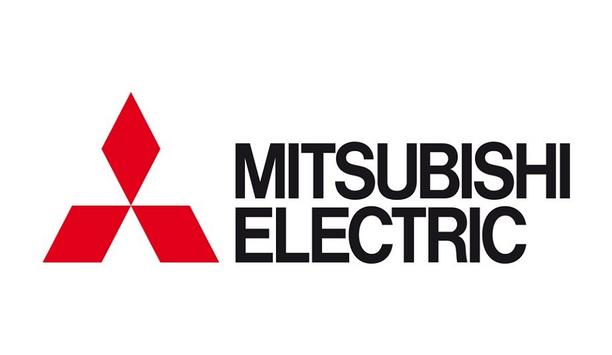Over the past few years, hydrogen has been dubbed the savior of residential heating and a major part of the plan to achieve carbon neutrality, yet new research suggests hydrogen should be reserved for the likes of aircraft and industry.
As part of the 2016 Paris Climate Change Accord, the economies agreed to keep global warming under 2°C. A key part of achieving that has been an agreement to become net zero on greenhouses gases by the year 2050.
Renewable heating method
With heating currently accounting for one-third of UK carbon emissions, it is no surprise that it’s been a key focus as the government looks for new ways to reduce the country's overall carbon emissions. A ban on natural gas boilers and all new build properties was announced back in 2019 by Chancellor Philip Hammond and since then proposed gas boiler replacements have been the subject of intense research and debate.
Hydrogen boilers have been a major contender in the race for a renewable heating method
Hydrogen boilers have been a major contender in the race for a renewable heating method, along with heat pumps and solar, yet hydrogen has remained the strongest due to its ability to be used in conjunction with the current gas network. However, new findings have delivered a big blow to the proposed plans for heating millions of UK homes with hydrogen boilers.
Existing gas network
Currently, there are various projects underway to test the feasibility of rolling out hydrogen via the existing gas network, funded by both energy companies and the government. This includes the so-called ‘hydrogen village’ in Fife, Scotland, set to become the first location in the UK where hydrogen appliances will be trialed in over 300 homes and fed with hydrogen gas directly from the grid.
Yet the new research, conducted by the Potsdam Institute for Climate Impact Research in Germany had harsh words for such plans, noting that hydrogen fuel remains inefficient and expensive to produce. Hydrogen is one of the most common elements on Earth, yet the major issue is that it’s typically bound to another element and so needs to be separated. The production of hydrogen from water molecules, referred to as ‘green hydrogen’ is both expensive and demands a significant amount of electricity.
Achieving carbon neutrality
Major industries such as freight and metal production are more likely to rely on hydrogen power
The research suggests that it may be more cost-effective and greener to rely on electricity directly to power both home heating and vehicles. The major reason for this is simply due to the fact that currently hydrogen production requires more electricity than is required to power either an electric car or an air source heat pump.
Major industries such as freight and metal production are more likely to rely on hydrogen power to achieve carbon neutrality. Yet the stark reality is that a reliable supply of green hydrogen power is unlikely to be available for many years. Relying on it to power residential heating and vehicles is simply not attainable at the current speed of development.
High carbon heating
The major risk of this is that it simply results in countries being reliant on high carbon heating for even longer. For instance, if consumers are advised that having a gas boiler installed is fine because the fuel supply will eventually transition to hydrogen, yet it ends up being too expensive or difficult to supply these homes could eventually be emitting carbon for many more years ahead.
Hydrogen is still seen as the ideal solution due to it being able to be used in conjunction with the current gas network. It’s also seen as the most affordable, for instance Energy Guide, has estimated that it would cost an average of £26,000 to switch each UK home to a low-carbon heating system such as heat pumps.
Generating adequate hydrogen
Many environmental campaigners are now calling for gas boilers to be removed
But this new research is making it clear that ‘green hydrogen’ may not be here for some time and as a result, the plan for hydrogen boilers being the solution is untenable. As a result of these observations, many environmental campaigners are now calling for gas boilers to be removed and replaced with low carbon alternatives, including heat pumps.
Generating adequate hydrogen to supply major industries such as freight and metal production will be a significant challenge on its own and expecting there to be enough to supply homes too is a huge feat that many are doubtful of.
There are three major types of hydrogen production, including:
- Grey hydrogen - This is the dirtiest type of hydrogen production made through the natural gas being burned with steam, which also produces large amounts of carbon.
- Blue hydrogen - The hydrogen is still produced via the burning of natural gas but is greener as the carbon is captured and stored underground.
- Green hydrogen - This is the most environmentally friendly method of hydrogen production. It uses electricity to cause a reaction known as electrolysis, resulting in water molecules being split into their hydrogen and oxygen counterparts. Yet this process is much more expensive than the other methods and requires significant amounts of electricity to achieve.
Decarbonize residential heating
It’s clear that the government is taking whatever steps necessary to achieve carbon neutral status by 2050 and that home heating needs to be reformed but there are a number of barriers to get there and in the case of hydrogen the production process is the major area of contention.
Many point to heat pumps as a suitable alternative, but is it really viable to expect most homes to pay for a brand new heating system with significant upfront costs? While strides have been made in the development of hydrogen-ready appliances and boilers, hydrogen production has not and it’s a considerable problem if it’s going to be relied upon to decarbonize residential heating.


















